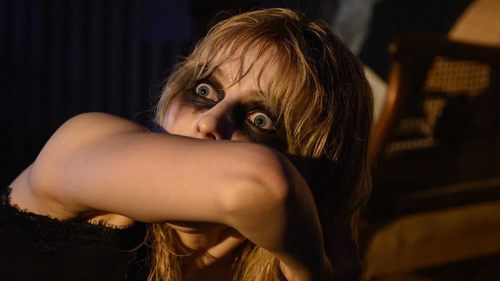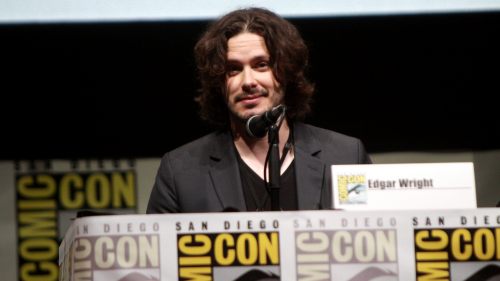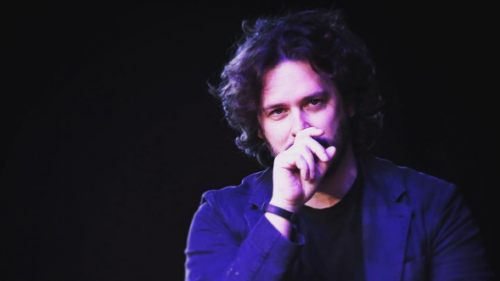The Winchester, The Crown And THE WORLD’S END: Film’s Unforgettable Pubs
My favorite bar in Houston, Warren’s Inn, is an old friend. Warren’s slightly elevated gazebo, with the high-backed chairs and the mirrors bouncing the dim lights of the Tiffany lamps off my martini glass, feels like it’s always left open just for me, waiting for my little group of friends to inhabit it as if we paid rent on the place. The bartenders know us here, they know our drinks. They know that we’ll bring in a slice of pizza from Frank’s next door and stay for hours, dominate the jukebox with the same rotation of Motown and classic country songs and then leave them a good tip on our way out the door at 2am.
Warren’s is an old friend, a fully-realized pal who lives large in my mind with his own personality and quirks. All the best bars do, don’t they?
A good movie pub has the same quality, that ability to stand as its own character as memorable as the characters who occupy it. We have no trouble remembering the names of these bars, recalling their décor, their clientele, their bartenders and jukeboxes. They’re fictional, but we’re jealous of the equally fictional people who get to drink there. Who wouldn’t want to throw a few back at the Mos Eisley cantina? Rocking band, exotic drinks, illuminated bar, lots of exciting violence to briefly capture your attention before you turn back to your steaming mug of something weird. That’s where I want to hang.
What makes these bars so unforgettable is that they are often an extension of the protagonists who frequent them. Rick's Café Américain in Casablanca is the elegant, shady heart of its own proprietor (Humphrey Bogart). Rick’s is as full of contradictions as Rick: packed but never crowded, refined but disreputable, the preferred establishment of the leader of the Czech Resistance and a pack of Nazi officers. We see the endless bottles of champagne and the warring bands and the cheating roulette dealer, the rising political tension amid the carved wooden beams and Moroccan lanterns leaving lacy, bigger-than-life shadows on the walls of Rick’s, and we understand that anything can happen here. And Rick Blaine – bitter, neutral, gallant, petty, passionate – we’re never quite sure what he’s about to do, either. Will love triumph or virtue? Rick keeps us guessing.
With less caviar and more flannel we find Road House’s The Double Deuce, a rowdy tavern at the city limits of Jasper, Missouri. Dalton (Patrick Swayze) is the principled cooler charged with breaking up fights and shaping up bartenders, and as punches are thrown, breasts are exposed and glasses are shattered, Dalton’s Tai Chi-gathered inner peace is severely tested.
The weird white light fixtures and bubble letters embellishing the walls of A Clockwork Orange’s Korova Milk Bar create a space that is stylish but empty, unnervingly so. Alex sips his opiate-laced milk here, his legs thrown lazily over one of the obscene mannequins scattered around the room, and he looks right at home.
The dripping candle sconces of The Slaughtered Lamb, The 5.6.7.8’s playing a rollicking set at The House of Blue Leaves, the relentless neon of The Titty Twister, the hazy stage in Bob’s Country Bunker – we don’t only remember these bars because of their furnishings. In all of these movies, the pub is where shit goes down. Triumphs and catastrophes happen here. As is often the case in life, the pub is where characters learn important truths about themselves.
Edgar Wright gets this better than most. The pubs of his Cornetto Trilogy loom large as cornerstones of destruction and healing at once. The Winchester, the cozily shaggy pub filled with “rich, interesting characters” is the site of Shaun’s stasis and his redemption in Shaun Of The Dead. Shaun (Simon Pegg) sits in a ratty leather chair, tearfully confiding over a pint with Nick Frost’s Ed. He tells him that his girlfriend Liz (Kate Ashfield) left him because, “She said if she stayed with me, she’d end up coming in here every night for the rest of her life like these sad old fuckers, drinking herself to death, wondering what the hell happened.” As if of its own accord, Chicago’s “If You Leave Me Now” begins to play and Shaun surrenders to his jukebox-sanctioned grief. The dark, wood-paneled walls of The Winchester, with its rifle above the door and frosted glass windows and sketchy-faced regulars, make for a place where you’d certainly want to spend an afternoon, but maybe not the rest of your life. Of course, once the zombie apocalypse hits, you might not have a choice.
As London is beset by the ever-increasing undead, The Winchester no longer represents the pathetic resting place of Shaun’s ambition. The Winchester – solid and ancient, nearly impervious – becomes a fortress of refuge. It’s the site of the last stand between humanity and unthinking annihilation, but it’s also the site of Shaun’s heroism, his vulnerability, his newly awakened awareness of Liz’s needs. Drinking at the pub day in and day out may have kept Shaun a child for decades too long, but it’s also the place where he finally learns to grow the hell up.
The Crown – the pub in Hot Fuzz’s little village of Sandford - is similarly crucial to Pegg’s journey as Detective Nicholas Angel. He goes there his first night in Sandford, sizing up the joint before he’s even officially on the job, kicking out minors and sticking to cranberry juice to keep his wits sharp. He’s not in the wrong, but he’s still kind of a dick about it. Uptight and unfeeling, making a miserable first impression on everyone in town before he’s even had a chance to unpack.
Here he meets a sloshed but well-meaning PC Danny Butterman (Frost), who spends his every night at the Crown before sleeping it off in the drunk tank of his own police station. Of course Nick is assigned as Danny’s partner, and every day after work as they change into their civvies, Danny in a rumpled polo and Nick buttoning the collar of his crisp oxford, Danny asks Nick what he’s up to that night. When Nick asks what he has in mind, Danny’s response is invariably, “Dunno. Pub?”
I’d hang out at The Crown every night myself if I lived in Sandford (particularly if I were underage and looking for a pint). The stained glass windows and wrought-iron lanterns, rickety wooden tables topped with candlesticks and nestled over leather studded armchairs – it just looks cozy. A little dusty, a little old-fashioned, as quaintly innocuous as Sandford itself is supposed to be.
The Crown is where Nick and Danny meet; it’s where Nick alienates half the town upon his arrival; it’s also where he learns to loosen up a bit and let his guard down. Danny finally convinces him to have a pint of beer instead of cranberry juice, and the two forge a friendship for the ages over one of those shabby old tables.
The Crown is, unsurprisingly, also the location of Hot Fuzz’s great showdown, an explosion of glass and wood and beer and blood where Danny and Nick’s intractable trust in one another is tested and found solid.
The Cornetto Trilogy (something of a joke title anyway) might as well be called The Pub Trilogy. The World’s End, the final chapter in this thematic threesome, follows five friends as they embark on an epic pub crawl, ending at an establishment named – you guessed it – The World’s End. As this also happens to be the site of what could very well be the actual end of the world, the last pub of the trilogy is also the most momentous. In fact, there are twelve pubs in the film that could easily join this list of cinematic mainstays, and each pub’s name bears symbolic and thematic weight: The First Post, The Old Familiar, The Famous Cock, The Cross Hands, The Good Companions, The Trusty Servant, The Two Headed Dog, The Mermaid, The Beehive, The King’s Head, The Hole in the Wall and, of course, The World’s End. I guess it’s no surprise that the trilogy – and the world itself, in Wright’s universe – ends in a pub, not with a bang but with a pint.
This was written for the "Cheers! A Celebration of Pub Life" issue of Birth.Movies.Death. in honor of Edgar Wright's The World's End. See The World's End at the Alamo Drafthouse tonight!



